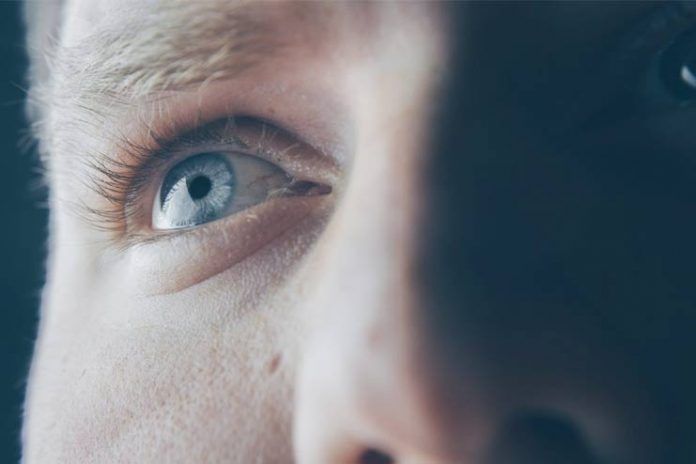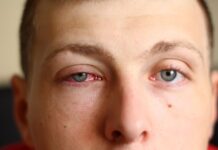Affiliate Disclaimer
Some links in this article are affiliate links. We may earn a small commission if you make a purchase through these links, at no extra cost to you. We only recommend products we find useful to our readersBeen experiencing weakened and blurry vision predominantly? While aging does bring about a plethora of problems, the degeneration of the macula is often a common factor. The prospects of macular degeneration cure extend on till a number of prospects.
If you are here wondering what is wrong with your vision, there could be a number of influencing factors and age related macular degeneration could be one of them.
In this article, we are going to be discussing about everything there is to know about the treatment for Macular degeneration and everything there is to it.
What is Macular Degeneration?
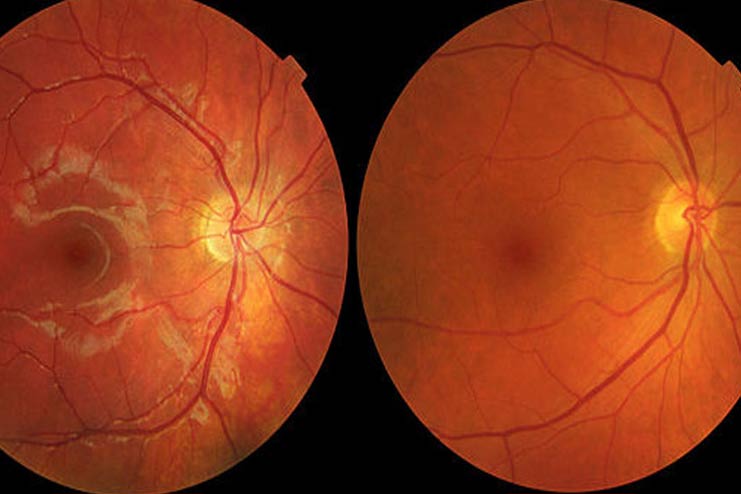
Macular is the central portion present in the retina. Often times, the ophthalmologists tend to inspecting this part of the eyes itself when someone does complain about a problem with their vision.
Also known as the functional centre of the retina, when this portion of the eye does undergo problems and disorientation and damage, that’s what we often refer to as the Macular Degeneration. This is also often termed as the age related macular degeneration.
Often times, macular degeneration is believed to be irreversible and can end up causing permanent vision loss and such which could be ghastly for one’s self.
Types of Macular Degeneration
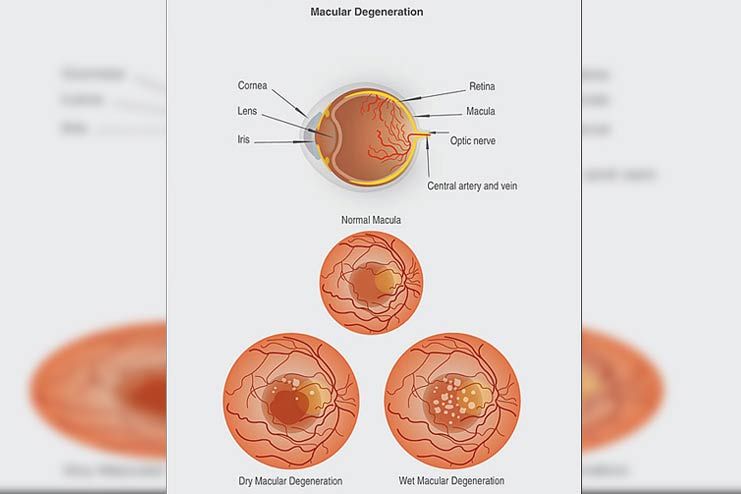
For the most part, Macular degeneration is of two types – dry and wet.
In medical terms, the dry macular degeneration is known as the Atrophic macular degeneration while the wet macular degeneration is known as the Exudative macular degeneration.
Stages of Macular Degeneration
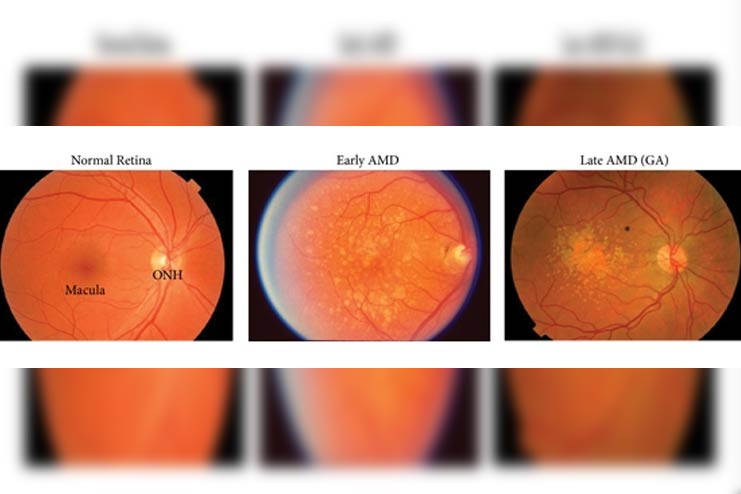
Now that we more or less have a clear idea of the types of macular degeneration, it is time we discuss about the different stages involved in the macular degeneration.
Predominantly, there are three different stages –
1. Early Stage
This is possibly the very first and the initial stage of macular degeneration. Owing to the fact that the people don’t necessarily lose any kind of vision in this stage, it is often hard to detect the problem in the early stage. This is also one of the primary reasons why it is best suggested to have consistent eye tests done time and time. Some of the predominantly sightings of the early stage is characterized by the presence of medium sized drunsen which are yellow deposits beneath the retina.
2. Intermediate Stage
Next on the list of stages is the middle or the intermediate stage. This is often the primary stage where there could be signs of vision loss and such affecting the individuals. The tests and eye exam often depict the presence of pigment changes in the retina.
3. Late Stage
The last and possibly the hardest stage in this is the fact that could lead to loss of vision for good because of the development of large drusen along with the unprecedented presence of the changes in the pigmentation around the retina and the eyes as a whole.
What Causes Macular Degeneration?
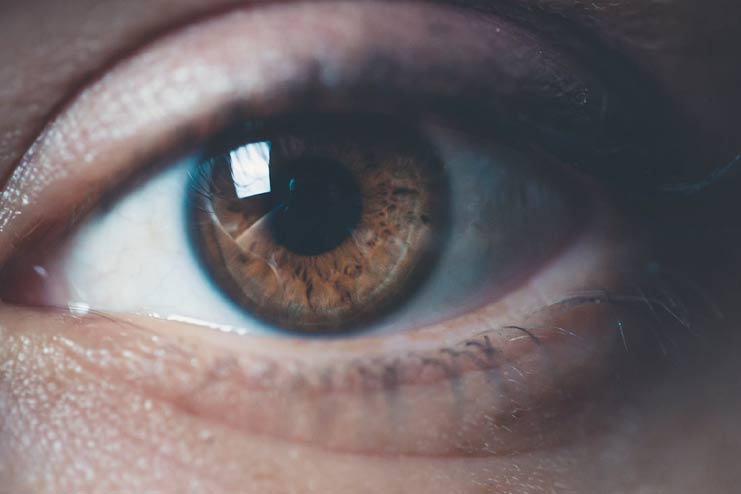
It is often hard to deduce what could be the potent reasons and causes behind the development of age related macular degeneration and if you are here wondering about the same, the picture is not that clear as of now.
Majority of the scientists and researchers are still working around trying to find the possible factors that could be influencing this and causing problems and issues relating to the condition.
There is believed to be a number of risk factors, age being one of the most common ones. Apart from that, one of the most common reason behind the same is believed to be environment and behavioural factors like smoking, white race, hereditary conditions, imbalance in the diet, hypertension and last but not the least, higher cholesterol levels in the body.
All in all, the researches are still ongoing and are believed to finally give a clear and clarified picture into what the reason behind the same is.
Signs and Symptoms of Macular Degeneration

Some of the most common signs and symptoms of macular degeneration include:
- Lack of clarity in the vision
- Presence of fluid or exudative material under or within the retina
- Presence of shadowy areas in the vision
- Fuzzy or distorted vision
Diagnosis of Macular Degeneration
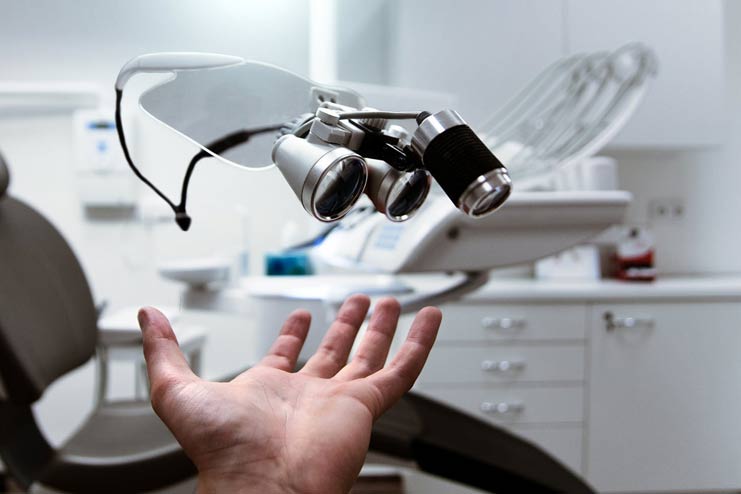
One of the best ways to prevent macular degeneration is to have an early diagnosis of the condition. It might not necessarily seem like a lot but even going for a regular eye examination can successfully help you get the problem tested out for.
Early detection of the problem does help in ensuring to delay the further worsening of the condition of help in delaying the condition to spread and become worse even further.
When it comes to the diagnosis, the ophthalmologist checks and examines the retina which is responsible for processing the light. The main objective is to look out for the presence of any kind of yellow drusen which is an early sign of the degeneration.
For diagnosis, the doctor even often suggests looking into an Amsler grid which appears like a checkerboard. If the patient finds the lines wavy or even some lines missing, chances are that they could be facing issues with their Macula.
Treatment for Macular Degeneration
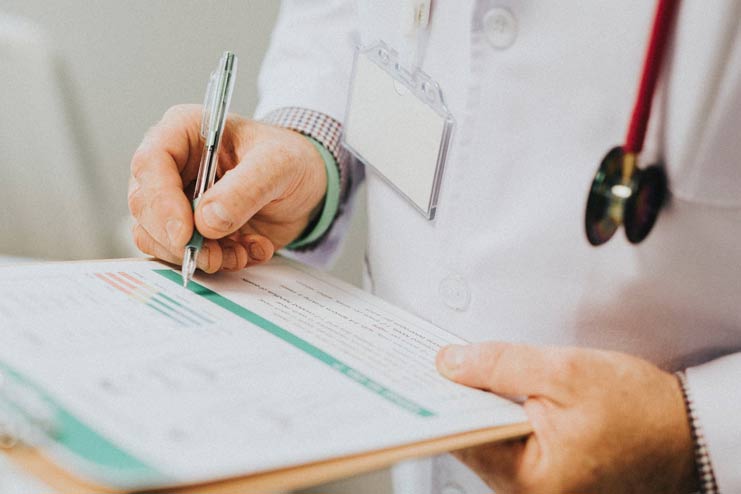
Before we get into discussing about the common methods of treatments that are opted by the doctors for treating the symptoms of macular degeneration, it is important we discuss a few tests that are often conducted for detecting the signs of the condition.
Optical coherence tomography (OCT)
The very first of the tests that are advised by the doctors to get done is the Optical coherence tomography (OCT). This is primarily a tomography plate that helps provide with a magnified 3D image of the retina for better viewing of the doctor. This helps them spot any possible swelling or inflammation or even any kind of distortions around the retinal layers.
Fluorescein angiography
Yet another one of the important conducted tests is the Fluorescein angiography. In this specific test, the doctor injects a specific dye into the vein in the arm and then watches the same travel to the eye and then reaching the retina. This specific test is very helpful in spotting any leaky blood vessels in the eyes or even any sightings of the blood in the macular region in the eyes.
Coming to the treatment for Macular degeneration, the approach is quite vast and extensive. It is important to understand that there is no possible cure for this condition but the treatments are aimed to delay the symptoms or prevent them from getting worse.
While some patients did report having to suffer permanent vision loss when the condition got severe and out of hand, some patients suffering this problem have said that they were able to reverse the vision loss with proper treatments and medications, the only catch being the fact that you need to have a continued treatment without any kind of stoppage.
Some of the common treatment options for age related Macular degeneration include:
1. Anti-angiogenic Drugs:
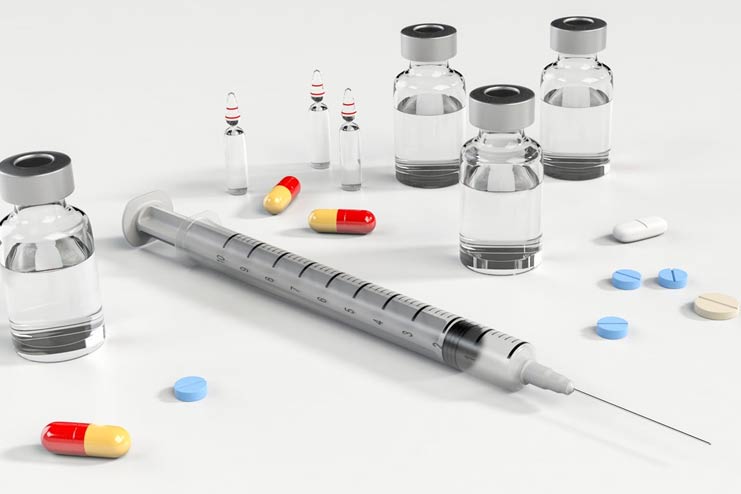
The anti-angiogenic drugs are very common form of treatment for the wet macular degeneration.
The doctor predominantly injects the medications into the eyes directly which helps prevent the production of any kind of new blood vessels and also helps in stopping any kind of further leak from the vessels that is predominantly responsible for the induction of wet macular degeneration.
2. Laser Therapy:
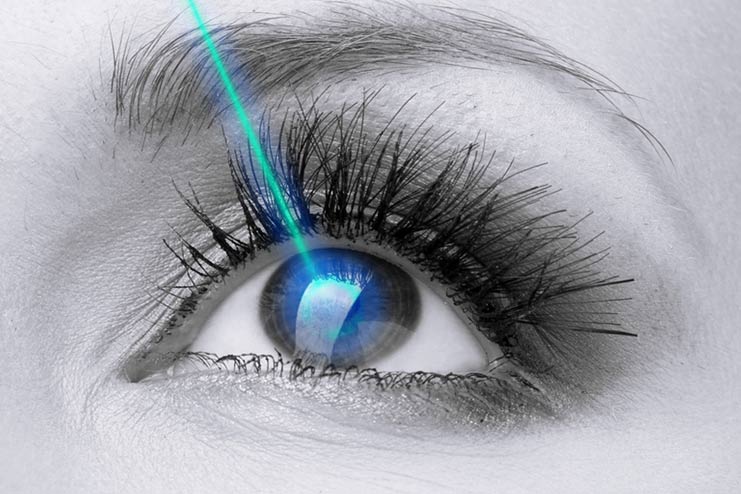
Opting for laser therapy for macular degeneration cure is quite a predominant method opted by the doctors nowadays.
The main reason behind the same is because of the amazing accuracy and impacts in improving the symptoms that could be behind this condition in the first place.
High energy laser light, when exposed to the affected site in the eyes, tend to have impacts in preventing the abnormal growth of the blood vessels around the retina and the macular region.
There is yet another form of laser therapy known around termed as the photodynamic laser therapy that targets the abnormal blood vessels using the administration of light sensitive drug.
For this process, the doctor predominantly injects the drug directly into the bloodstream of the body which is then detected by the abnormal blood vessels in our eyes. Following that, he projects laser into the eye which is what ends up disrupting the abnormal blood vessels.
3. Retinal Translocation:
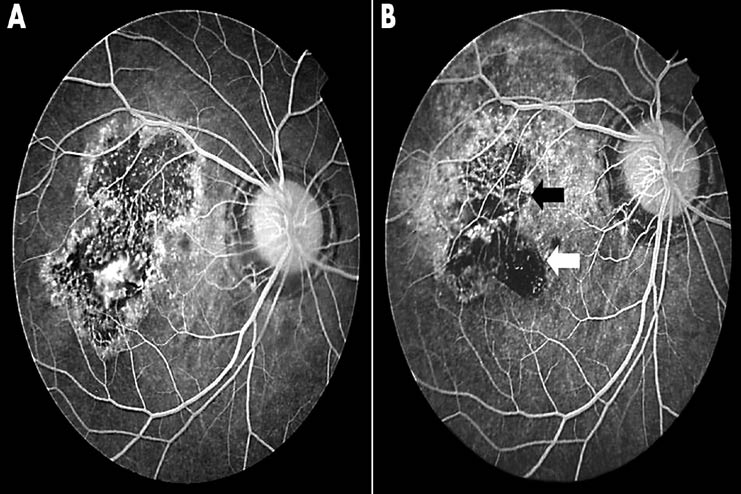
Retinal translocation is yet another one of the treatment options for macular degeneration. Even for the ophthalmologists, it does become difficult to reach to the centre of the macula. This is the primary spot that is not easy to reach around even with a laser beam.
In this process, the doctors move around the macular centre behind the retina to ensure that they are away from the abnormal blood vessels. Once that macular centre is pried away from the affected abnormal blood vessels, it does become easier for the doctors to treat the affected portion in the eyes with a laser.
Apart from the retinal translocation being a potent operative method, submacular surgery is yet another option that helps in the removal of the unwanted and abnormal blood vessels and scar tissue around the retinal and macular region.
Vitamins for Macular Degeneration

When it does come down to considering the nutritional supplements for Macular degeneration, the possibilities are quite confined to a few prospects.
It goes without saying that maintaining a proper nutritional balance is key to one’s overall health, be it for anything for that matter.
According to the age-related eye-disease study (AREDS), there is a standard proportion of diet that one does need to follow through.
Several of the clinical trials from the National Eye Institute (R) do suggest that the proper maintenance of the nutritional levels in the body can be helpful in slowing down the process of degeneration caused in the macular region.
There have been two consecutive suggestions based on the AREDS and we are going to be highlighting the same for you.
According to the AREDS1, the first study comprised the following:
- Vitamin C – 500 mg
- Vitamin E – 400 Industrial Units (IU)
- Beta-carotene – 15 mg
- Zinc – 80 mg (as zinc oxide)
- Copper – 2 mg (as cupric oxide)
According to the very first AREDS study (R), it has been suggested that the people who did stick to consuming the combination of daily antioxidant and zinc supplement did have the potency of reversing the problems effectively. It did portray a reduced risk of macular degeneration by 25%.
The first AREDS study was conducted and published by 2001.
Owing to the positive drill with the first AREDS study, the second study of AREDS2 (R) was conducted and published by 2006 after a persistent 5 year study.
While the study did more or less have a similar nutritional supplementation like the AREDS 1, the same did have an additional two more compounds – lutein and zeaxanthin. The study included more than 4000 participants and was found to have reduced risks of macular degeneration by 25%.
They scientists also removed beta-carotene from the diet and added the other two supplements for effective results in prevention of the macular degeneration.
Diet for Macular Degeneration

While Macular degeneration doesn’t necessarily have any proper cure, it is important that you do stick to a healthy diet that will promote delaying the condition as much as possible.
Our vision and eye health does depend a lot on what we are consuming. So, it is not surprising that even the macular degeneration cure is associated with the kind of food you are consuming.
When it comes to the foods that one should consume, the same include:
- Omega-3 fatty acids like fatty fishes
- Beneficial carotenoids like lutein and zeaxanthin
- Antioxidant vitamins like Vitamin C and Vitamin E
- Zinc
- Vitamin D rich foods
- Vitamin A rich foods
On the contrary, when it comes to the foods that one should avoid for macular degeneration include:
- Junk food
How to Prevent Macular Degeneration?

Prevention is always better than cure. That is what majority of the people say, right?
Given the severity of this condition and the consequences it brings along, it is not surprising that preventing this condition is the way to go about with it.
For the most part, the preventive measures are easy. Let’s take a look at some, shall we?
Have a Healthy Diet
What we eat affects our body for the good. It goes without saying that a healthy diet promotes a healthier vision. Consuming more vitamins and essential minerals can help in promoting better eye health owing to the overall impacts it has on the body functions.
Stop smoking one of the most common reasons behind dry macular degeneration has been found to be because of smoking. If you want good advice on the preventive methods for macular degeneration, stopping smoking is definitely one of them.
Routine Eye Exams
Owing to the stage-wise deterioration of the condition, it is not surprising that many people get the problem detected when it has reached the last stage. For the best impacts, it is best suggested to perform routine eye exams. This helps in keeping track of any possible abnormalities and even ensuring that the condition is detected at an early stage.
Concluding it, macular degeneration cure might not be available as of the current medical research goes but that doesn’t mean there are no possible way to work around it. Maintaining a healthy lifestyle is the key to this, so ensure that the same is maintained accordingly.
In this Article













